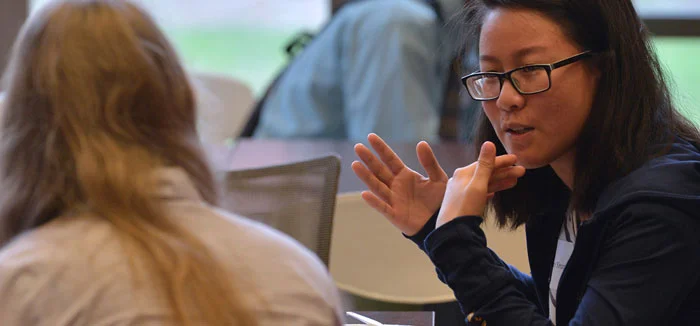Undergraduate Summer Research Programs (SRP)
Summer research programs provide the chance to work in a lab full time and experience research first-hand. We've compiled a comprehensive list of summer research opportunities organized by academic focus.
If you play a role in the management of a summer program for undergraduate students, JYI would like to advertise your program on our website. Clicking this link will send you to a form that requests a title, subject, web link, stipend information, location, and start/end dates.
The Science Park Summer Program in Cancer Research (SPCR) provides an authentic research experience for outstanding undergraduate students considering careers in biomedical research. This highly competitive program routinely receives over 100 applications for a limited number of positions.
You’ll be undertaking research to understand what consumers want and need, and developing the technology and science to bring new innovations to life. You’ll be helping to make our brands even healthier, more appealing, more efficient and more environmentally friendly – improving our products in any way possible. Our people have the opportunity to make a big impact every day on a local level, across Europe and the globe.
An undergraduate summer placement is an ideal opportunity for students who are studying for their first degree (including medical and veterinary students) to gain research/work experience, usually during the summer recess.
Placements are usually available across the full spectrum of the Institute's activities and are offered for three months between June and September.
Our nine-week summer student programme provides bright, ambitious undergraduates considering a future in biomedical research with hands-on experience of what it's like to work in a research lab.
You will be paired with a postdoctoral supervisor, who will train and supervise you as you participate in institute life over the summer.
You'll benefit from a supportive and stimulating research environment, and scientific and transferable skills training. The types of techniques that you learn will depend on the project and could include molecular biology, cell biology, biochemical, biophysical and computational biology techniques.
Summer programs at the National Institutes of Health (NIH) provide an opportunity to spend a summer working at the NIH side-by-side with some of the leading scientists in the world, in an environment devoted exclusively to biomedical research (At the NIH "biomedical sciences" includes everything from behavioral and social sciences, through biology and chemistry, to physics, mathematical modeling, computational biology, and biostatistics). The NIH consists of the 240-bed Mark O. Hatfield Clinical Research Center and more than 1150 laboratories/research groups located on the main campus in Bethesda, MD, and the surrounding area as well as in Baltimore and Frederick, MD; Research Triangle Park, NC; Hamilton, MT; Framingham, MA; Phoenix, AZ; and Detroit, MI. NOTE: the number of positions in Hamilton, Framingham, Phoenix, and Detroit is limited.
The Vienna Biocenter Summer School provides a unique opportunity for approx. 28 undergraduate students to work side by side with leading researchers in a dynamic scientific environment
Our programme aims to attract talented students from around the world, creating a vibrant and diverse atmosphere. It is the perfect preparation for those students who are interested in graduate study in the life sciences arena. Applicants who are successful are provided with accommodation, a travel allowance and a stipend for the duration of the scholarship. The programme, starts on the last Friday in June and finishes on the the last Friday of August each year.
Datasets of enormous complexity and size are being generated in the diverse areas of genomics, imaging, electronic health records, social media and environmental monitoring. The insights obtained from these massive data sources will inform the prevention and treatment of human diseases and play a major role in biology, medicine and public health in the coming decade. But more training is needed to prepare the next generation of leaders to tackle these challenges.
The Big Data Summer Institute, a six-week interdisciplinary training and research program at the University of Michigan, has been designed to introduce undergraduate students to the growing number of approaches to big data
On a 12 week summer placement starting in the summer, you will learn on a real job with real responsibilities. You will work alongside Unilever managers to set goals and measure your performance against Unilever competencies.
During your programme, your line manager will formally appraise your performance and provide feedback and coaching to build on your key strengths and development areas. You will receive a buddy and functional contacts who will be you support throughout the whole programme.
If you are successful on the placement, you may be fast-tracked to the Discovery Centre of our Unilever Future Leaders Programme.
An undergraduate summer placement is an ideal opportunity for students who are studying for their first degree (including medical and veterinary students) to gain research/work experience, usually during the summer recess.
Placements are usually available across the full spectrum of the Institute's activities and are offered for three months between June and September.
Many John Innes Centre laboratories welcome undergraduates over the summer period.
Our summer vacation bursaries provide an excellent opportunity to gain first hand experience in an internationally respected laboratory and are particularly useful for undergraduates who may be considering taking up a Masters of PhD studentship after graduating.
Students in the first year of a post-16 science, technology, engineering and maths (STEM) course studying at a state-maintained school or college in the UK are eligible to apply. The majority of the placements will go to students from low-income households. We also provide placements to students who do not have a family history of going to university. We make sure no one is excluded on a financial basis by covering students' travel costs and providing weekly bursaries for eligible students.






